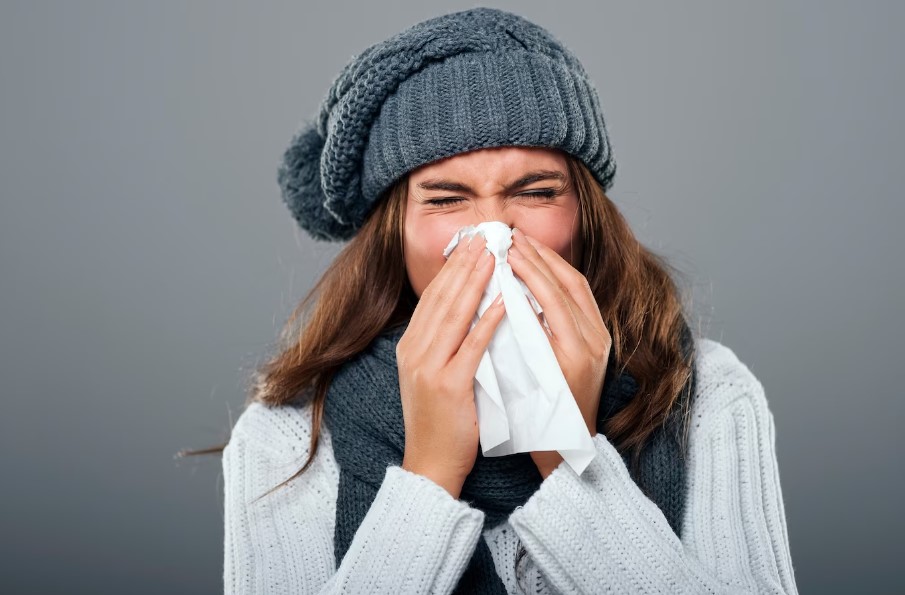One eagerly anticipates the arrival of the happy and lush monsoon season, keen to take advantage of the rain and chilly breeze. By the end of June, India enters its rainy season, which lasts until September. In general, the start of the monsoon disrupts the atmosphere by producing hot and humid conditions. People frequently refer to the monsoon as the “season of viral diseases” because of the abrupt, severe drop in temperature. After the start of the monsoon, many people are targeted by viral diseases while everyone else is enjoying the season with tea and pakoras. In such situations, it is crucial to have a healthy lifestyle and combat challenging monsoon diseases.
Let’s examine some typical monsoon diseases and discuss precautions that can be taken to maintain immunity and good health.
Influenza
Influenza (Flu) is a contagious monsoon disease brought on by several viruses and characterised by fever, chills, sneezing, coughing, and sore throat. Additionally, the nose, lungs, throat, and breathing system are all easily impacted by these viruses. The influenza virus, which goes by numerous names including kinds A, B, and C, typically has an impact on people’s health during the cold and flu season. It is one of the contagious diseases that transmit readily from one person to another and is commonly referred to as the flu. People can contract these viruses from one another by airborne droplets from sneezing and breathing. The virus affects the host when a healthy or unaffected person inhales these droplets.
Growth of Malaria
Throughout the monsoon, the season hosts a variety of different illnesses. Malaria is one such monsoon disease that is risky and invited by monsoons. The malaria parasite enjoys a cosy environment to reproduce, making the rains an ideal environment for the disease to thrive. Creeks, temporary ponds, and regions with standing water are created as a result of the persistent rains. These stagnant water sources create the perfect habitat for these mosquitoes to start multiplying, which is how the malaria parasites are spread. Fever, chills, headaches, body aches, and weariness are among the usual symptoms of these monsoon diseases.
Dengue Fever
The monsoon season contributes significantly to the spread of illnesses particularly dengue fever. Aedes aegypti and Aedes albopictus, two notable kinds of infected mosquitoes, are famous for biting a living body and transmitting infection to spread diseases. The monsoon provides the perfect conditions for these insects to develop and quickly transmit the disease. Therefore, it becomes crucial to avoid consuming water from bodies of stagnant water like ponds, lakes, or streams. People can also use insect repellents and nets to stop the infection and spread of this monsoon disease. Even though both dengue and malaria are transmitted by mosquitoes, they are caused by different infections and have different symptoms.
Stomach Infections
Stomach flu and gastrointestinal problems are among the monsoon diseases that occur most frequently. This disease lasts for around three days and severely weakens your immune system due to contaminated water and unhygienic food practices. The most typical symptoms of stomach flu include cholera, and hepatitis A, fatigue, a low-grade temperature, nausea, diarrhoea, mild vomiting, stomach discomfort, and appetite loss. You must take steps such as eating a simple diet, cleaning your hands frequently, obtaining more sleep, and adding zinc to your diet.
Typhoid
Typhoid or typhoid fever is brought on by the Salmonella enteric serotype Typhi bacteria, which is a bacterial illness. Typically, consuming contaminated food or drinking water can spread this bacterium. This virus enters the body through the stomach, travels to the small intestine, where it spreads twice as fast and enters the bloodstream. Typhoid has a negative impact on the liver, spleen, lymph nodes, gastrointestinal tract, and lymph.
How to Prevent Monsoon Diseases?
- Consuming a balanced, fruit- and vegetable-rich lunch.
- Avoiding being around cigarette smoke.
- Avoid entering water-logged areas.
- Using mosquito repellent and avoid eating outside food.
- To clear a blocked nose, take a hot bath or shower in a confined space.
- Drinking freshly strained hot water that has been sweetened with honey and lemon juice.
- Using warm, salty water to gargle.
- Consuming water and abstaining from alcohol and other drug use.
- Keep your surroundings tidy and wash your hands often.
- Avoid using the fireplace.
- If you want to loosen up secretions in your nasal passages, use the recommended inhalers.
- Respiratory hygiene is important and hence wash your hands and cover your face while coughing.
`










